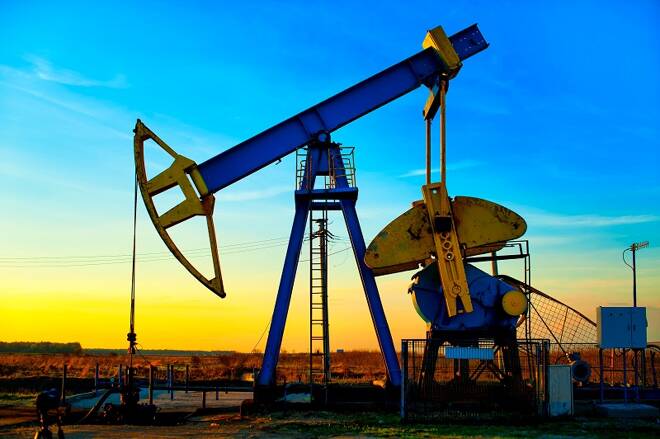Advertisement
Advertisement
Oil Prices Sink Again, as Investors Look Out for More Supply
By:
NEW YORK (Reuters) -Oil prices fell by more than $1 a barrel on Thursday on expectations of more crude hitting the market after a compromise deal between leading OPEC producers and a surprisingly poor weekly reading on U.S. fuel demand.
Brent crude settled at $73.47 a barrel, dropping $1.29, or 1.7%. U.S. West Texas Intermediate (WTI) crude settled at $71.65 a barrel, down $1.48, or 2.2%.
The slide continued Wednesday’s losses, after Reuters reported that Saudi Arabia and the United Arab Emirates had reached an accord that should pave the way for a deal to supply more crude to a tight oil market.
A deal has yet to be solidified, and the UAE energy ministry said deliberations are continuing.
“That’s still the big elephant in the room – we had a deal, we didn’t have a deal – and that’s raising concerns,” said Phil Flynn of Price Futures Group.
Talks among the Organization of the Petroleum Exporting Countries, Russia and their allies, a group known as OPEC+, broke down this month after the UAE objected to extending the group’s supply pact beyond April 2022, saying the deal did not account for the UAE’s increased output capacity.
In the United States, a large drawdown in crude stockpiles did little to boost prices as investors focused on rising fuel inventories in a week that included the Fourth of July holiday, when driving usually surges.
“All that sense of gasoline optimism evaporated in just one week,” said Bob Yawger, director of energy futures at Mizuho. “If you don’t need the gasoline, you don’t need the crude oil to make the gasoline, and that’s the only math that matters at the end of the day.”
Several banks, including Goldman Sachs, Citi and UBS expect supplies to remain tight in the coming months even if OPEC+ finalizes an agreement to raise output.
OPEC, in its monthly report, said it still foresees a strong recovery in world oil demand for the rest of 2021, and predicted oil use in 2022 would reach levels similar to before the COVID-19 pandemic.
For a look at all of today’s economic events, check out our economic calendar.
(Additional reporting by Bozorgmehr Sharafedin in London, Florence Tan in Singapore; Editing by Marguerita Choy, Will Dunham and Edmund Blair)
About the Author
Reuterscontributor
Reuters, the news and media division of Thomson Reuters, is the world’s largest international multimedia news provider reaching more than one billion people every day. Reuters provides trusted business, financial, national, and international news to professionals via Thomson Reuters desktops, the world's media organizations, and directly to consumers at Reuters.com and via Reuters TV. Learn more about Thomson Reuters products:
Advertisement
